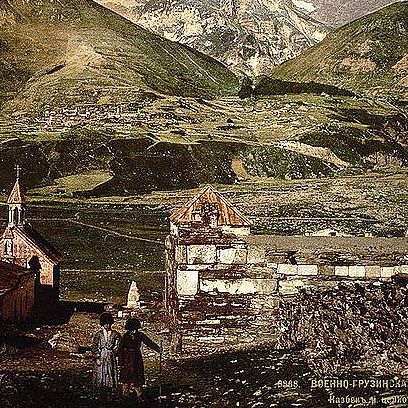This looked like an idyll: Armenians and Azeris, Russians and Georgians, add Turks and Armenians, for four days of discussion on such flammable issues as religion, democracy, and nationality in the Southern Caucasus. This group met in Tbilisi for a seminar convened by professors Ansgar Joedicke (University of Freiburg), Evert van der Zweerde (University of Nijmegen), and Alex Agadjanian (Moscow). Both the intensity of communication between experts from countries whose relations are far from friendly and the European mediation in this bridge-building exercise were quite indicative and encouraging. The seminar was also illustrative of how Western academic knowledge is painstakingly adjusting to the shift of political attention from the Euro-Atlantic to non-Western regions. In post-colonial studies there are many voices claiming that political analysis has to liberate itself from the straitjackets of Western theories. This sounds politically correct, yet lots of concepts with evident Western academic legacies (like soft power, identity, security or hegemony) and approaches developed by European scholars (from Gramsci to Foucault) proved to work quite well for describing the dynamics on the ground in South Caucasus.
Many Westerners know that politically, democracy is certainly not the best concept to approach Caucasian elites. Yet scholars – at least those I met in Tbilisi – don't seem to discard democratic discourses. Perhaps, the current doubts in the universality of democracy are to a large extent due to the narrowness of the Western liberal understanding of democratic governance. Yet the "repertoires of democracy" apparently stretch beyond classical liberal premises. Apparently, local democratic practices can function even in an illiberal political milieu.
What also needs some fine-tuning is a simplistic detachment of modernity from tradition, embedded in Western scholarship. In the South Caucasus, traditional religious beliefs are definitely parts of modern projects of state building and by no means can be discarded as obsolete. Georgia is a good example of a country divided between a pro-Western political elite and the explicitly anti-Western Orthodox Church. In fact, these two competing projects of national identity don't easily get on with each other, which presages a high level of political conflictuality in society.
Paradoxically (and perhaps symbolically), none out of a dozen Caucasus scholars who study one of the most militarized regions in the world, addressed hard security issues (or energy, another hot topic for the entire region). Instead they have chosen to speak about identities, rituals, ceremonies, images, (mis)perceptions, narratives and storylines. Under a closer scrutiny, many of these ideational constructs are evidently illusions fostering wishful thinking and can be academically deconstructed, but politically they are resilient and self-reproducing. However essentialist they might be, myths make societies more or less unified communities. This has practical repercussions due to the permanent political operationalization of identities and frequent securitization of any diversity (mostly ethnic and religious).
The South Caucasus seem to be one of the most dynamic parts in the EU-Russia common neighborhood. EU policies are more institutionalized: the Europeans at least pretend that Georgia, Armenia and Azerbaijan form a single region that is part of the Brussels-sponsored Eastern Partnership. Russia mostly pursues bilateral relations with Tbilisi, Yerevan, and Baku. The EU has nothing but soft power, while Russia is in possession of hard power resources as well. However, neither military force nor coercive energy diplomacy proves to be effective, which makes Russia to increasingly invest in soft power resources.
Yet states are not the only sources of soft power. Take the participants at the aforementioned seminar. They practiced soft power themselves by deconstructing stereotypes, questioning relations of enmity, and bridging communicative bridges between identities that would otherwise be militating against each other. If scholars can do this, why can't diplomats?
Andrey Makarychev is a Professor at the Institute of Government and Politics, University of Tartu, blogging for PONARS Eurasia on the Russia-EU neighborhood.









